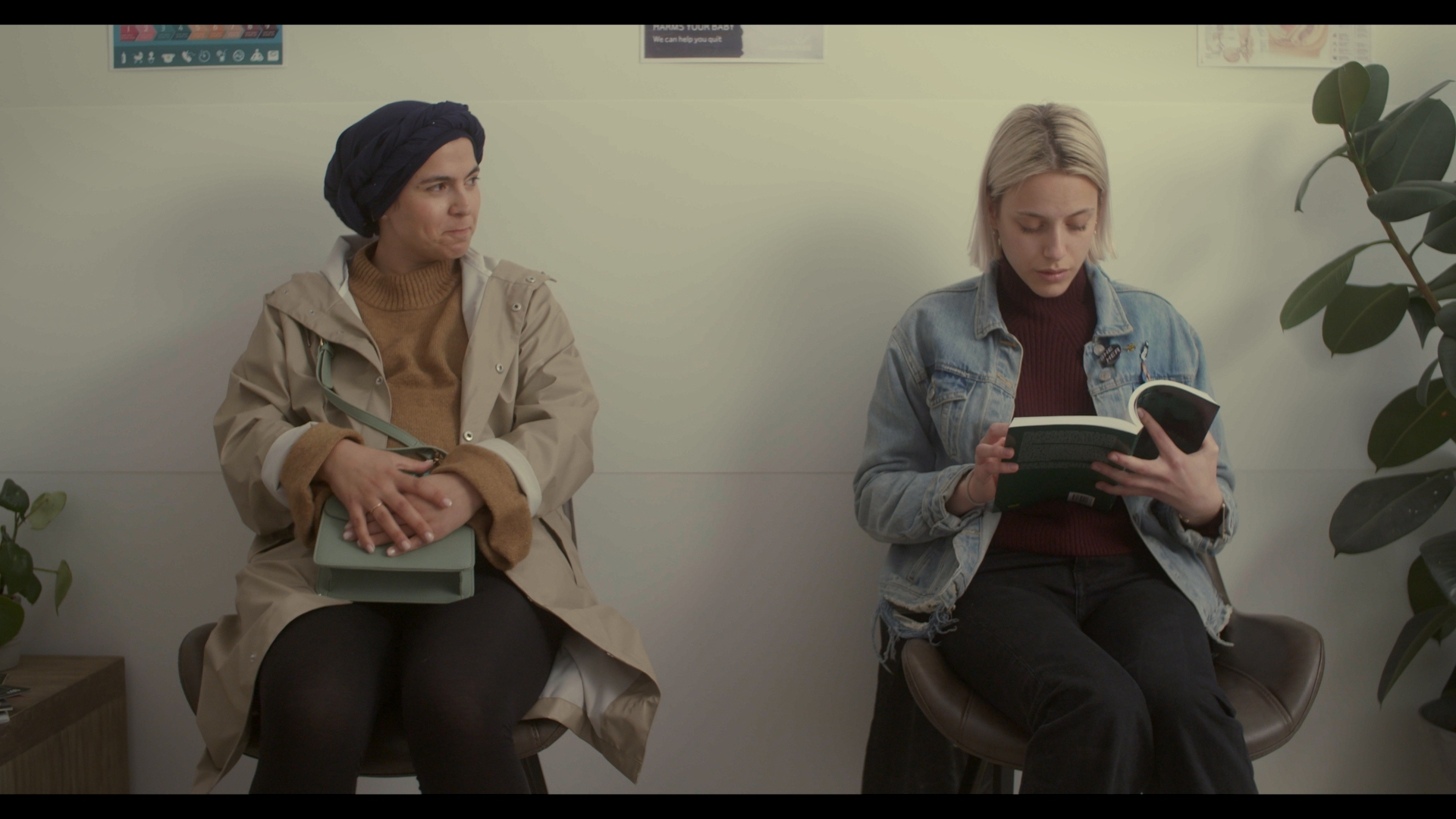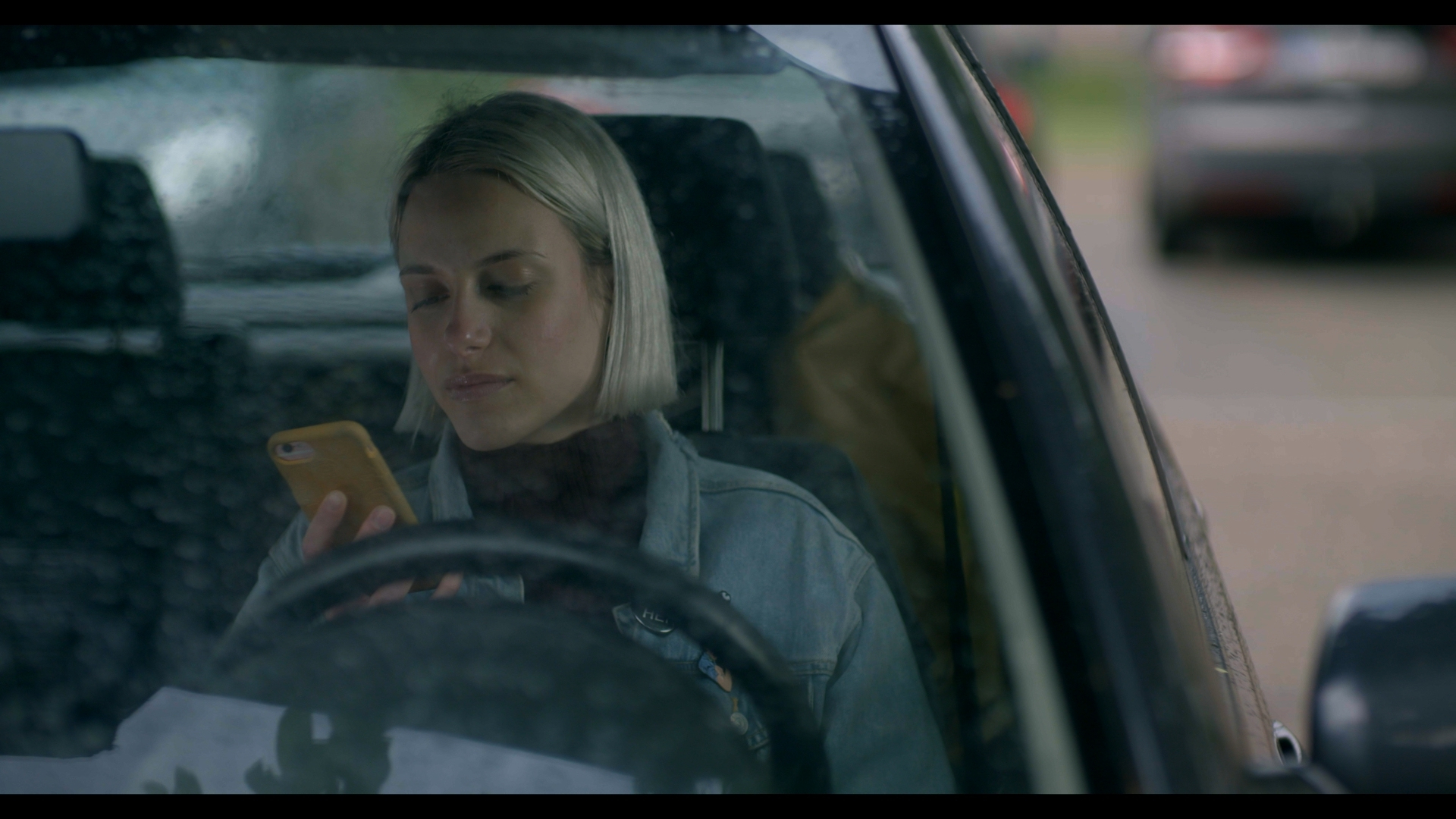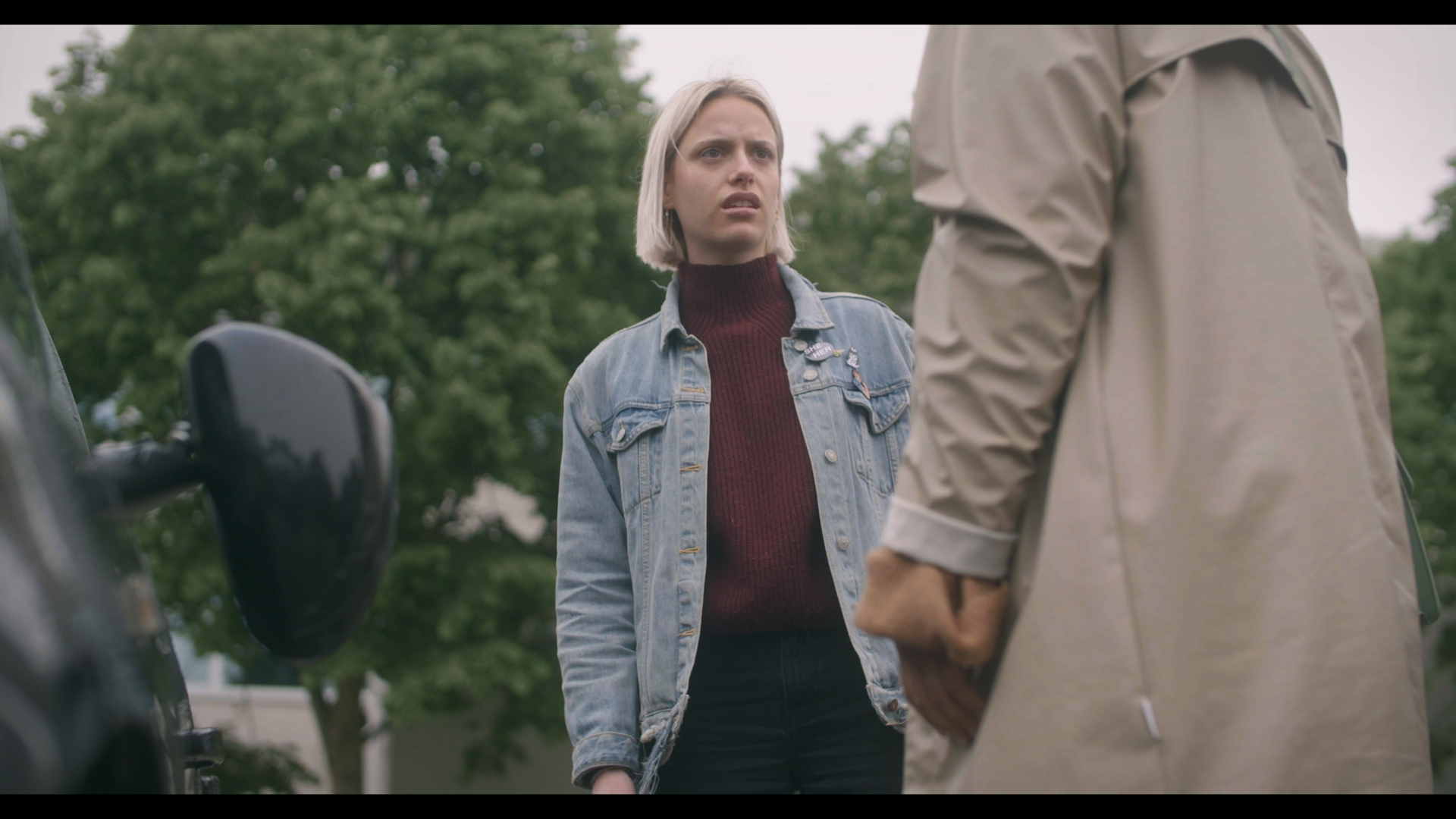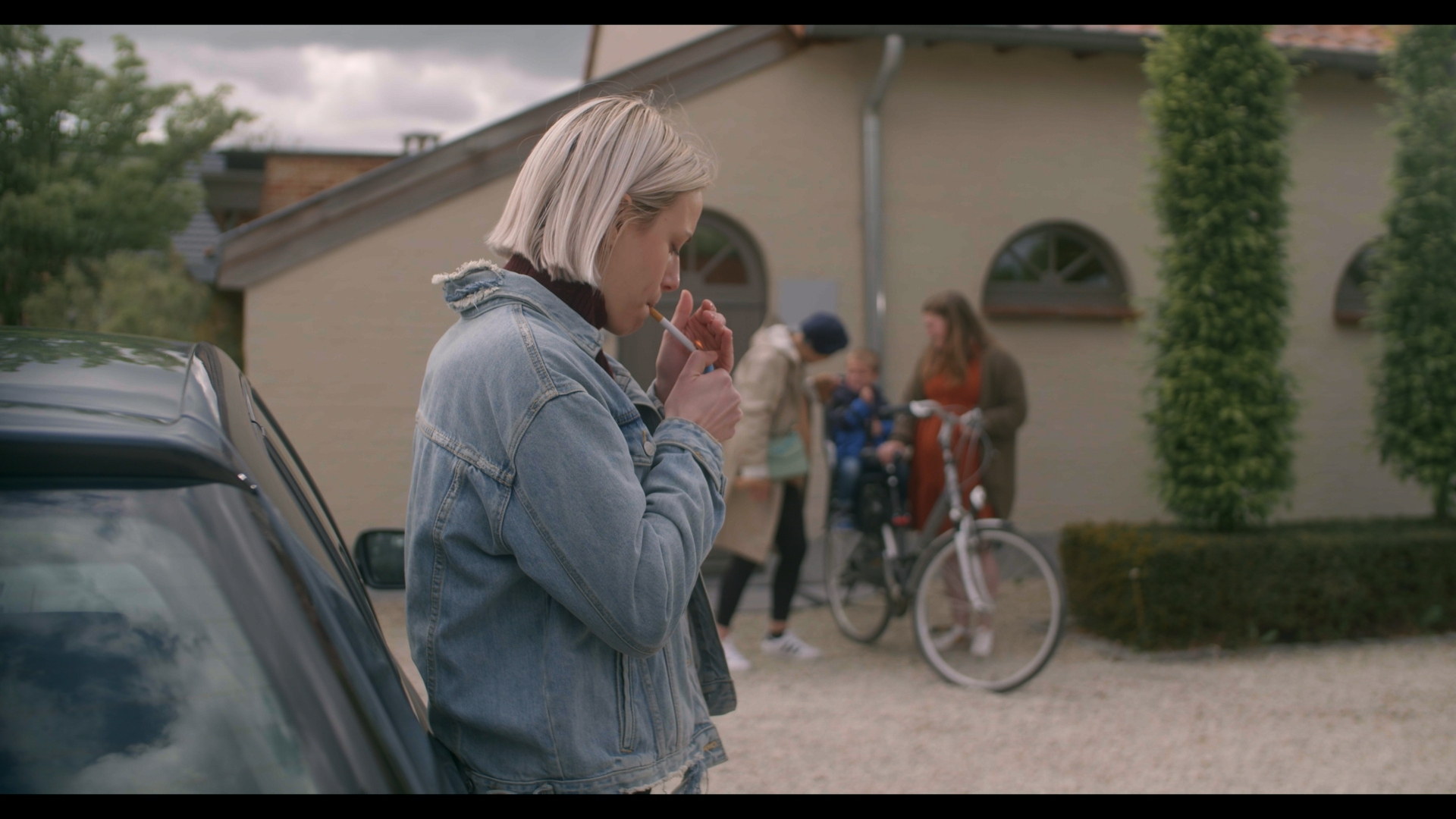
Case Study: Crossroads
Amelie Wilsens teamed up with a group of fellow students.
Geplaatst op 3 september 2021
Amelie Wilsens teamed up with a group of fellow students.
Geplaatst op 3 september 2021As an assignment for school, Amelie Wilsens came up with an idea about two pregnant girls who change each other's lives. Teaming up with a group of fellow students, the producer found the right people to make Crossroads into a short film. Wilsens tells us all about the production process.
"What if there is this girl who is pregnant but doesn’t want to be and she meets a woman that is happy about being pregnant?"
"This movie was made as part of our school trajectory to graduate the bachelor Television and Film. Every crew member who participated in this movie was at the time a student at Luca school of arts C-mine Genk.
At the beginning of the school year, our teacher asked us to come up with ideas for short movies. The emphasis was on ‘one life changing moment’. I wasn't planning on pitching an idea but one night I was talking to my mom about these life changing moments and the idea started to take form. What if there is this girl who is pregnant but doesn't want to be and she meets a woman that is happy about being pregnant and their lives change because of their interaction with each other? That was kind of the starting point.
After that, a lot of us pitched their ideas and a jury of teachers and professionals chose the two best ones. This was one of them. Since I'm not a good writer, two other classmates took over the writing and got started on the script. One of them was Ella Esposito, who also became the director.
Ella and Bo would write a version, send it to our teacher and he would give feedback. This process took a couple of months, until the final version, a few weeks before shooting started. The last changes were made after the table read, where they got some feedback from the cast. As the person who came up with the idea, I had no trouble letting go of it. I gave complete freedom to Bo and Ella to make it something they thought was great. As a producer, I also didn't have to put any restrictions on them. Everything they put in the script was manageable."

"Since this movie is made by film students, we had to fund the movie ourselves for the most part. There were twelve of us and we all pitched in 150 euros. That was of course not enough to fund the movie, so we also sold wine and did some projects for bands and companies to gather money. Our school also pitched in and payed for our COVID-19 tests and the actors. The eventual cost of the movie was 2200 euros and we filmed three days.
I don't think I have to tell anyone that making a movie while in a pandemic isn't easy. This was also the case for this movie. At first our shooting days were planned between the 12th and 18th of April. Three weeks before our shoot, we got the news from our school that they were closing for a month because of the rising number of COVID infections. This meant that we couldn't film and had to postpone. This was a big bummer for everyone but after being sad for a couple of days I got back to work.
I started with contacting our cast to make sure we could find new dates so we could continue with them. Me and Ella love the two actresses we found for the roles of Sofie and Maryam, so this was really important to us. It took a while but eventually we found dates that worked for both, and I could go ahead and organise everything else. We were lucky our locations didn't mind the change of date and we could keep the same locations. We ended up filming May 22, 23 and 24. A delay of five weeks."
"One of the only problems we had during the shoot was the terrible weather. We had hoped that the weather at the end of May would be sunny or maybe cloudy, but it was cold and rainy. This made it harder for the actresses to stay warm and to stay focused, but they did a great job none the less.
Our audio postproduction editor, Roy, also did a great job hiding the rain. Because of the rain we also had to change the planning of the scenes we would film on certain days. It could not rain when we were filming the scenes when they were in the car. This was planned on the first day, but we had to change it to the last day because of less chance of rain. Lucky for us it stayed dry for a couple of hours, and we could film everything we needed. It started pouring down 20 min after we were done that day, so we were really lucky."

"The music in Crossroads is made by Sam Cartier. He's a Dutch movie composer that just graduated from Conservatory Haarlem. He communicated with Ella, and he knew what she wanted right away. It didn't take long for them to get to the music you hear in the movie.
I asked Ella if she had any tips for other young directors like herself. This is what she responded:
'Always be curious to the world around you, there is a story to be found in everything.'
I hope this gives you more of an insight into our production process."


"My movie was selected by several festivals, among which the European Film Festival of Brest and Festival Jean Carmet (France), Moscow Shorts (Russia) and Ko:sh Film Festival (Albania).
Promoting my film was complicated this year because of COVID-19, which forced some festival to become 100% online. Festivals are important places to meet with professionals and the audience.
My final advice to a director is to make your movie, whatever it takes!"
(c) All visual material is used with the filmmaker's permission.